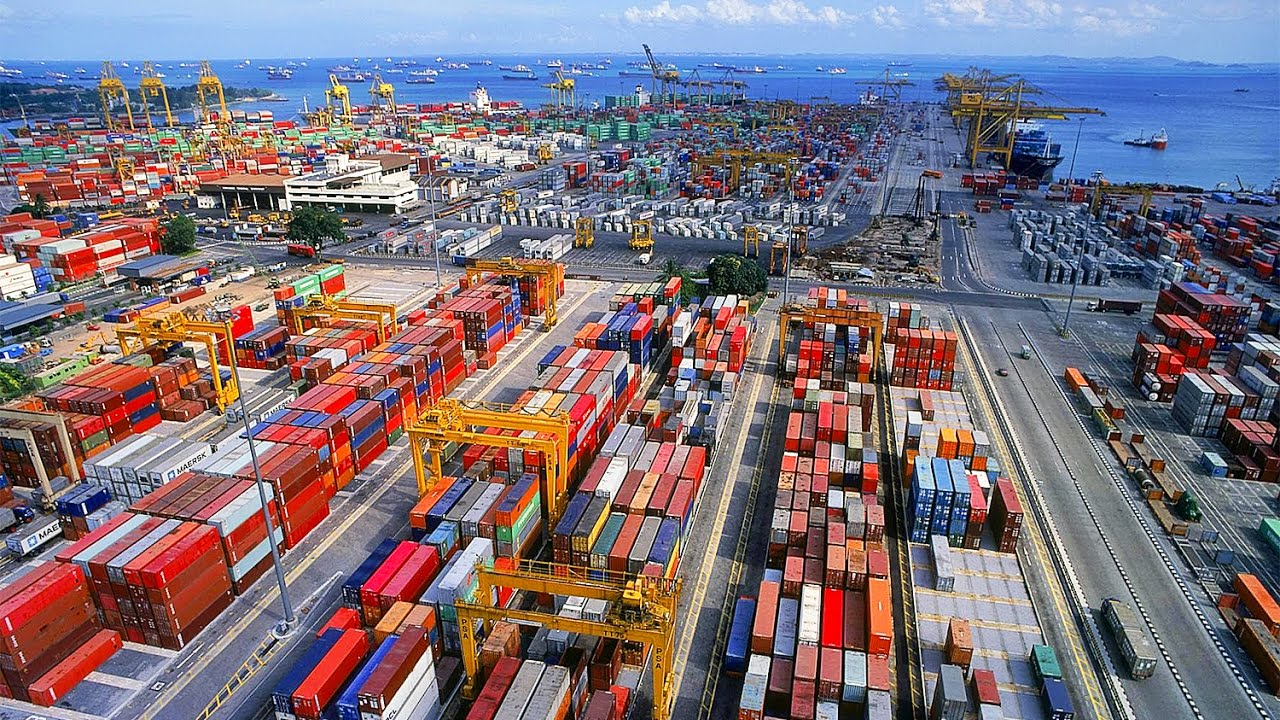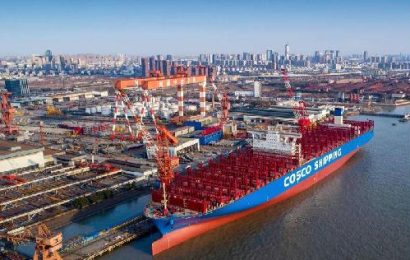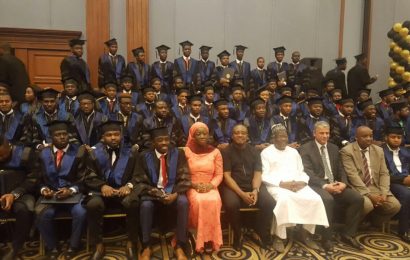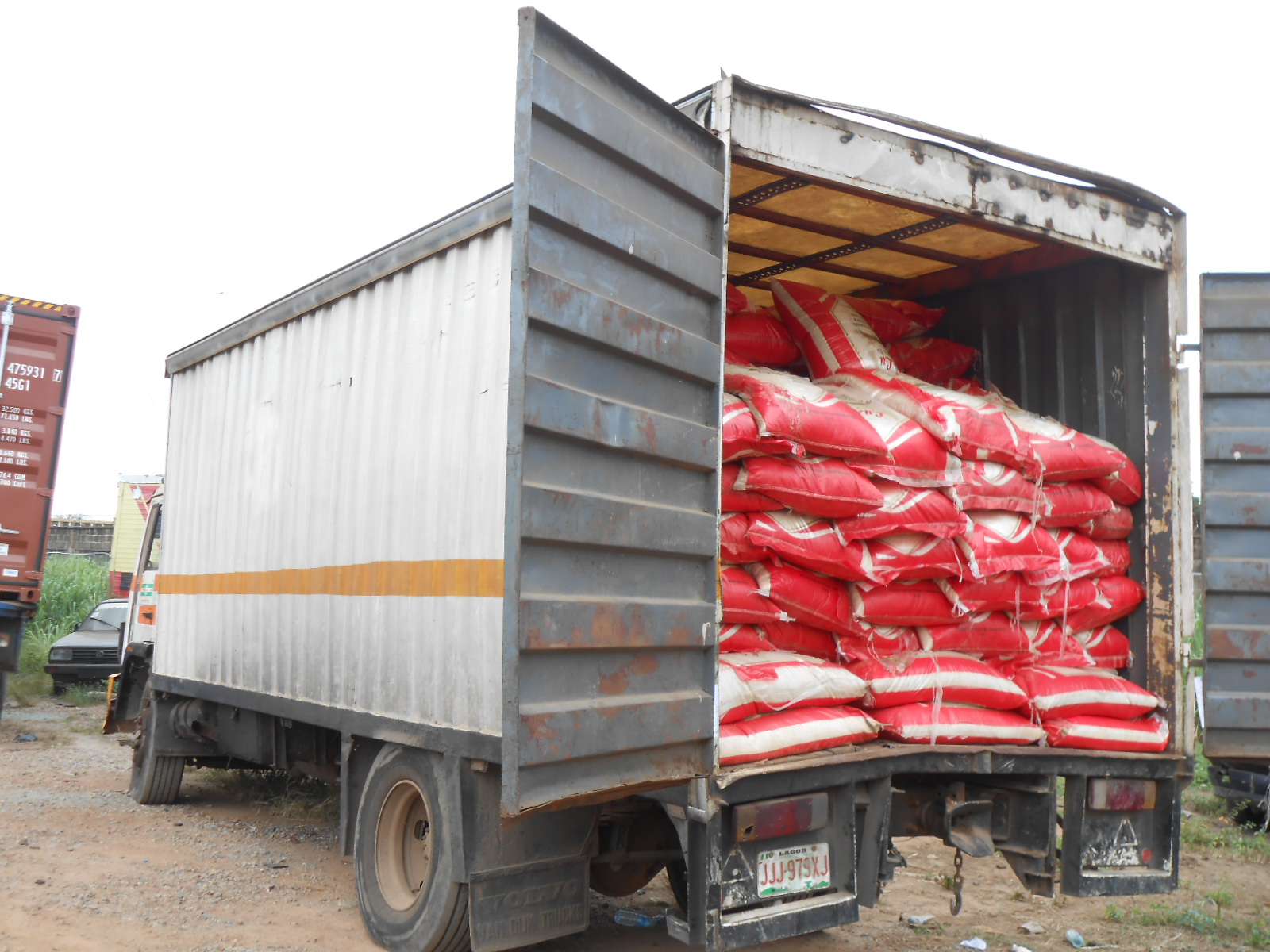

On assumption of duty as Managing Director/CEO of the Nigerian Ports Authority NPA, Mohammed Bello-Koko was quite clear and intentional on his mission and vision for the nation’s seaports, which were then seriously grappling with infrastructural decay across all port locations and the attendant inefficiency, characterised by high cargo dwell time, low turnaround of vessels that call at the seaports.
This mission and vision were captured in his popular maxim, which states that: “Modern port infrastructure and automation remain the fulcrum of efficiency and competitiveness.” It was in light of this that the banker-turned port expert undertook a detailed study of the most efficient seaports in the world and his findings aligned with his vision and mission for Nigeria’s seaport industry.
As at then, the most commonly reported event was the worsening Apapa gridlock, which had over the years seemingly defied all possible solutions and had crippled economic activities in the area. This left most residents with one option to relocate or die due to the stress associated with being on traffic for upward of seven hours for a journey that would take a maximum of 45 minutes under normal circumstances.
In response, the Bello-Koko-led management rejigged the operation of the already existing electronic call-up system for trucks, also called éto’, deployed modern equipment, rejigged the enforcement architecture and in a matter of weeks, the seemingly intractable Apapa gridlock, which had brought port activities to all time low disappeared in a matter of weeks as if it was magic. As would be expected, there were efforts to sabotage the new system but the MD deployed the new enforcement regime even against some erring members of staff of the Authority, which left everyone with the realisation that it is no longer business as usual.
To further sustain the drastic reduction in the gridlock along the main port corridors and the internal access roads, the management intensified the enforcements, ensuring proper batching, continuous access control mechanisms and movement of cargo via barge operations, provision of 24 motorcycles deployed to aid effective monitoring of truck electronic-call-up operation at both Apapa, Tin Can and Ijora axis to boost and sustain the free flow of traffic. It also established a standing partnership with the Nigeria Police high command, which resulted in the reduction of illegal checkpoints along the port corridors to stem abuse and extortion as well make traffic management more effective.

Having addressed the erstwhile Apapa perennial gridlock, the new management began the actual rehabilitation of existing port infrastructure, which culminated in the decision reconstruct the Tin Can Island, Apapa and Rivers Ports.
To this effect, the Bello-Koko-led management convinced Bua Sugar Refinery, which is one of the concessionaires at the Rivers Port in Port Harcourt to commence the process of reconstruction of the some of the collapsed berths at the port, especially berths five and six with the submission of engineering designs to the NPA, which was approved with some modifications.
The management in conjunction with the then Federal Ministry of Transport also commenced talks with some stakeholders for the reconstruction of Tin Can Island as well as Apapa Ports under some form of Public-Private Partnership PPP arrangement.
While speaking on the need to revamp most of the country’s existing port infrastructure, most of which were built over 50 years ago, Bello-Koko then said: “I want to bequeath a legacy of rehabilitated port infrastructure with the right marine equipment and that is what we are already working on. Discussions have started in terms of the design; we have not got the full designs for Tin Can Island Port.
“The design is going to be on how it will be reconstructed, what will be the likely cost of the reconstruction and we will do same for the Apapa Port. We would not mind if it is what would require us to provide the guarantee for the funds, but discussions are ongoing.
“We are urging Bua Sugar Refinery to reconstruct the collapsed berths at the Rivers Ports and recently, the company has submitted the external drawing and we are vetting it. If we are able to achieve all these, we would have achieved a lot. We are pursuing massive rehabilitation of port infrastructure and under it we have the proliferation of deep seaports in the country; it is an all-encompassing programme.
“We are also working on workers’ salaries, emoluments and other welfare issues. The last time salaries were reviewed in NPA was in 2004 and so we are working towards improved welfare of the workers. All these are my legacies I want to bequeath to the industry and I want you to hold me responsible for that”.
As a good and compassionate administrator, Bello-Koko believes strongly that he has to work on the welfare and wellbeing of the human capital element in order to achieve his desire for a new port system in terms of infrastructure and automation, thus the need to review salaries and emoluments of the workforce that is expected to drive the new innovations.
As part of measures to ensure navigational safety and also address the long waiting time of vessels at the anchorage, the management under Bello-Koko’s watch undertook the rehabilitation of the Control Towers at the Apapa and Tin Can Island Ports and equipped them with modern and state-of-the-art communication and other facilities that compete with those in the most efficient seaports in the world.
It also provided and installed 86 Buoys for Warri and Calabar Pilotage Districts, for proper channel marking and route mapping. This is in addition to acquiring Harbour Crafts (Tugboats, Pilot Cutters, and Patrol Boats) to eliminate delays associated with berthing and sailing of vessels and improve efficiency across all port locations.
It was also in the light of these that the management secured approvals for the construction and rehabilitation of quay infrastructure at berth 15 of the Lagos Ports Complex, Apapa and the completion of internal road networks for the integration of berths nine,10, &11 at Federal Ocean Terminal, Onne Port.
Also approved was the supply and installation of 180 marine fenders to boost the overall integrity of the quay facilities and serve as precautionary measure to prevent any form of accident arising from direct vessel impact on quay wall and completion of consultancy services for the shore protection and rehabilitation of the Escravos breakwaters. Others include survey and mapping of Warri Pilotage District from Fairway Buoy-Warri-Sapele up to Koko Port to the prescribed standards of the UKHO Charts, which had been left unattended for several years.
Other safety initiatives of the management include the dry-docking of various marine crafts to increase the fleet of marine crafts available for vessel support operations, procurement and deployment of security patrol boats (SPBs) to all Pilotage Districts to address incessant attacks of vessels along the channels and at port waterfronts, establishment of a robust partnership with the European Union-funded West and Central Africa Ports Security (WeCAPS) towards risk prevention, vulnerability assessment of port infrastructure, skills acquisition to port personnel to strengthen the security and safety of Nigeria’s seaports and the standardisation of Operational Procedures for different activities including but not limited to barging, private jetties, pilotage, vessel berthing and sailing.
The Bello-Koko-led management in its infrastructure upgrade drive also created the Forcados signal station, designed to boost the ability of the Authority to capture movement of more service boats, commencement and completion of bathymetric survey for the dredging of Escravos channels and increased container holding capacity at Rivers Port, which was a fallout of conversion over unused space within Ports and Terminal Operations Limited PTOL Terminal into stacking area. Others are; upgrading of infrastructure at Terminal ‘B’, Berths seven and eight, Onne Port Complex through PPP investment by Messrs WACT Nigeria Limited in excess of $110 million over a period of two years. This has so far achieved 62per cent completion. Approval was granted to Messrs Ringadars for the construction of 6,000 metric tonnes Bitumen Tank in Rivers Port Complex to improve the company’s bitumen storage capacity, which will ease their operations and have impact on the infrastructural development of the South-South. The construction is nearly completed.
The NPA under Belo-Koko also acquired two brand new 80-tonne Bollard Pull Tugboats christened M.T MAIKOKO and M.T DA-OPUKURO constructed by world’s renowned shipyard, Damen to complement its existing fleet of tugs. This is with a view to boosting marine, harbours and towage services. The decision of the management, which was then less than six months to acquire these state-of-the-art craft and first of its kind in the entire African continent stemmed from the huge embarrassment in the handling of the Egina integration project, which was carried out at the Lagos Deep Offshore Logistic Zone LADOL, where the country had to hire a tug boat of less capacity from one of the African neighbours because Nigeria had none on her fleet. The vision and future-driven management of Bello-Koko therefore decided to acquire such tugs with higher capacity, considering then that the Lekki Deep Seaport was about to come on stream.
It is also on record that the management is currently working with the International Maritime Organisation to evolve a Port Community System, which would integrate other pockets of automated systems in the industry under one umbrella to enhance speed and lower cost. The list is endless.
Speaking at the conception stage of the project, Bello-Koko said: “We are currently understudying what has been done in some of the most efficient seaports in the world. Something that we can say this is it; that is the Community Port System and Harbours automation because we have come to the full realisation that no seaport can achieve efficiency without automating the systems.”
No doubt, it is evident that the country is already beginning to enjoy the benefits of these huge investments in port infrastructure renewal. The recent return of the transshipment cargo from some landlocked African countries, which were hitherto lost to Republic of Benin and Togo is part of the testaments to this. The return of the transshipment cargo follows the improved efficiency, especially in terms navigation, lower turnaround time of vessels and improved cargo dwell time, among several others.
Only last month, the Federal Government further approved $1.1billion to further enable the NPA embark significant upgrade of seaports in the country to boost their competitive advantage. This is in tandem with the desire of the Bello-Koko management to further boost the country’s trade competitiveness.
While speaking on this new development in Lagos, recently, Bello-Koko noted that almost all the seaports in Nigeria require rehabilitation, adding that the NPA is initiating a substantial overhaul, which will begin with the Tin-Can Island and Apapa Ports both in Lagos.
“Part of the objectives of the authority is to enhance the physical infrastructure of these ports to accommodate vessels of all sizes and increase the draft at the quay side, with the aim of achieving draft depths of up to 14 meters.
“We’re certain that the initiative will render Nigeria’s seaports more competitive on a global scale. The NPA is also strengthening collaborations with the private sector to establish new seaports. The Lekki Deep Seaport has already commenced operations, and the Badagry Deep Seaport recently signed an agreement with a Middle Eastern party, with construction scheduled to commence early next year.
“These endeavours exemplify the NPA’s determination to create a multimodal transport system connecting all seaports seamlessly. While we recognise the inefficiencies associated with road-dependent cargo evacuation, the NPA is actively working on alternative initiatives which include implementing barges and expanding rail infrastructure since the rail line has already reached Apapa Port and will soon extend to Tin Can Island Port”, the NPA-boss said.
Reacting to these strategic giant strides of the current management, a former Managing Director of the NPA, Chief Adebayo Sarumi, noted that Bello-Koko has actually surpassed the expectations of the then management of what a modern seaport should be albeit within a short time.
Speaking against the backdrop of Nigeria’s dilapidated and abandoned Mission to Seafarers MTS facility located on Marine Road Apapa, which Bello-Koko management also rallied stakeholders rehabilitate, Sarumi said emphatically that the current management is getting it right in terms of what the roles and responsibilities of a port landlord should be under the present scheme of things in the country’s port industry.
He said: “The Bello-Koko management of the NPA has done well. You know I am in a position to say this because I have also been a Managing Director of the NPA. His management is getting it right. When in those days and I happened to be the midwife that delivered the port reform, we were looking for those, who will deliver the gains of the port reforms, we never thought of people like him.
“But here we are today. He has even surpassed our vision of what a modern seaport should be; a seaport that is well connected and globally competitive and people would be happy using such ports. This management under Bello-Koko is doing it and the world can see it, so we give them kudos and encourage them to do even more.”
On the rehabilitation of the dilapidated and abandoned facility, Sarumi, who doubles as chairman of the MTS, noted that it has become historical for the port authority to shoulder several general industry responsibilities, hence the decision of the board of the MTS to reach out to the NPA management for assistance towards renovating the facility built during the colonial era.
He noted that apart from boosting Nigeria’s image globally, bringing the facility to global standards has further enhanced the country’s rating as a maritime nation, especially as she plans to vie for an elective position into the Category C of the Council of the International Maritime Organisation IMO, an organ of the United Nations.
Sarumi also said: “We appreciate the NPA for coming in to render this support, we understand the burden NPA is grappling with, it’s a lot. NPA has always been in the vanguard of everything. A port community should be one that shares virtually everything, but it is now becoming only NPA carrying everything, and we are grateful to the Managing Director for not changing in that trajectory.
“The once dilapidated and abandoned facility has been transformed into one of the most welcoming arenas for the seafarers visiting Nigeria. They would have opportunity to get in touch with their families, since the communication gadgets have been set up, which would allow them speak directly to their families back at home.
“Remember that NPA is not their employers, but we are only giving them a feeling of being human. We have been groping for assistance for so long but I have faith that someone would eventually come and assist us one day and Bello-Koko has just done that and we are grateful to him.”
While speaking on the benefits of Nigeria having a befitting Seafarers Centre, he said this would further lead to removal of the War Risk Insurance Premiums usually placed on seafarers calling at Nigerian ports.
“Before now, some of the Seafarers, when they are coming to places like Nigeria, they usually take War Risk Insurance Premiums on them as if they are going to the warfront, with this, there would not be such things again, and at the level of IMO, we would go with our head high, that we are one of the most welcoming ports of the world, when we say we want to seat in the Council, t-hey would agree that indeed, Nigeria is a maritime nation.
“Bello-Koko management is getting it right; he is interpreting our dreams of what a modern port should look like” Chief Sarumi also said.
With all these transformations, one can safety say that the long expected good times for Nigeria’s seaport industry are here at last. This is therefore a clarion call to stakeholders to lend their support so that these giant strides would be optimised and sustained-Business&Transport.




